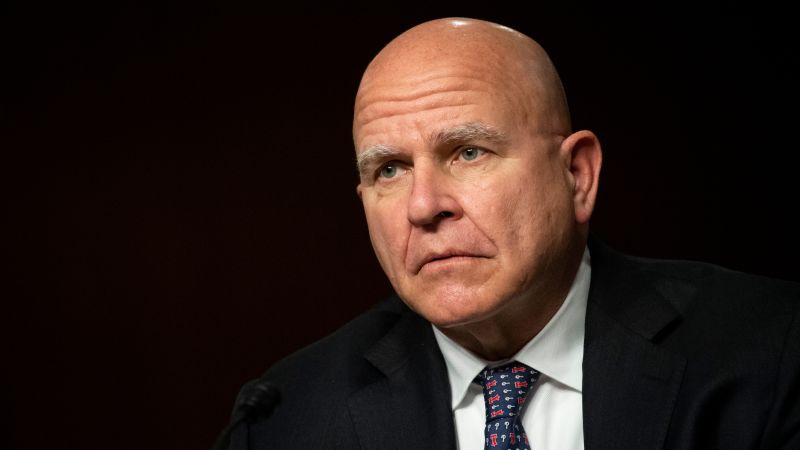CNN
—
Retired Lt. Gen. H.R. McMaster, who served as national security adviser under former President Donald Trump, said Monday his onetime boss bears some responsibility for the US’ chaotic withdrawal from Afghanistan in 2021.
McMaster told CNN’s Anderson Cooper that the former president had made a decision in 2017 to maintain a US presence in Afghanistan, but that Trump then changed his mind. The Trump administration ultimately entered into an agreement with the Taliban requiring US troops to withdraw from the country by May 2021. President Joe Biden, after he took office, pushed that withdrawal date back to August.
“He couldn’t stick with the decision,” McMaster,who served as Trump’s national security adviser from early 2017 until April 2018, said on “AC 360.” “He didn’t stick with the decision. And I think people were in his ear and manipulated him with these mantras: ‘End the endless wars’ and ‘Afghanistan is a graveyard of empires’ and so forth.”
Asked by Cooper if Trump bears some responsibility for the heavily criticized withdrawal during the Biden administration, McMaster responded, “Oh, yes.”
Trump on Monday participated in a wreath laying ceremony at Arlington National Cemetery in Virginia on the third anniversary of the attack at Kabul airport’s Abbey Gate that killed 13 US military service members.
Trump was joined by some family members of the fallen service members. The former president regularly attacks the Biden administration — and recently Vice President Kamala Harris, now his 2024 Democratic rival — over the chaotic withdrawal of US troops from Afghanistan.
McMaster, in his new book, “At War with Ourselves: My Tour of Duty in the Trump White House,” wrote about his perception that Trump often sought the praise and approval of strong-men foreign leaders like Russian President Vladimir Putin and Philippines’ former President Rodrigo Duterte so he could be seen as a similarly strong leader.
“I’m trying to explain really the strength in some of the aspects of the president’s character, but also the vulnerabilities. And of course at times I was reluctant to write some of this because I thought I don’t want to give if he’s reelected kind of a playbook of how you can maybe manipulate Donald Trump,” McMaster said Monday.
McMaster breaking his silence on Trump’s tenure in the White House comes as Americans weigh whether they want to place the Republican presidential nominee back in the Oval Office or make Harris their new commander in chief.
McMaster responds to Kelly’s characterizations of Trump
While at times critical of the former president, McMaster offered Monday a unique and nuanced insight into Trump’s decision-making process.
“I did see him learn and adapt and really evolve his understanding of situations. People would often say to me, ‘Does he listen, does he?’ Yes, he does. But oftentimes when he does come to what I think is a really solid conclusion based on talking to a wide range of people getting a wide range of views, oftentimes he can’t hang onto that decision and then policy becomes unmoored,” he told Cooper.
Trump tapped McMaster, a three-star general who served with distinction in the 1991 Gulf War and the Iraq War, to be his national security adviser in February 2017.
McMaster lasted just over a year in the Trump administration and was replaced by former US ambassador and Fox News analyst John Bolton — who himself released a book detailing a troubling and shocking series of allegations about his time working for Trump.
Asked whether he’d serve in a Trump administration again, McMaster said he would not.
“I think, Anderson, I will work in any administration where I feel like I can make a difference, but I’m kinda used up with Donald Trump,” he said.
And on whether he’d work in a Harris administration, McMaster said, “I don’t know if I would be effective there either based on probably my different points of view and what is a sensible policy toward the Middle East, or really fill in the blank.”
CNN’s Kate Sullivan and Peter Bergen contributed to this report.
This report has been updated with additional information.

